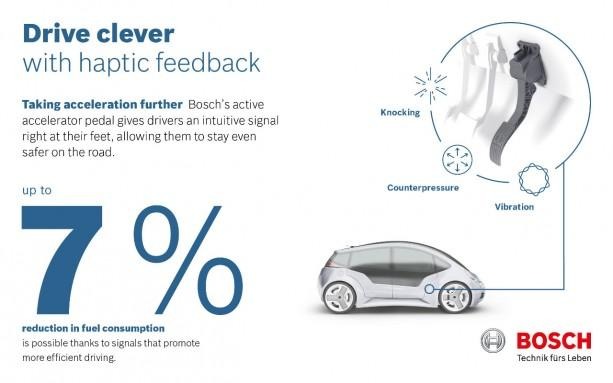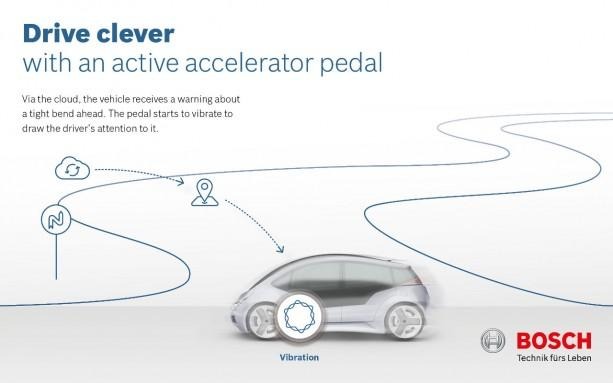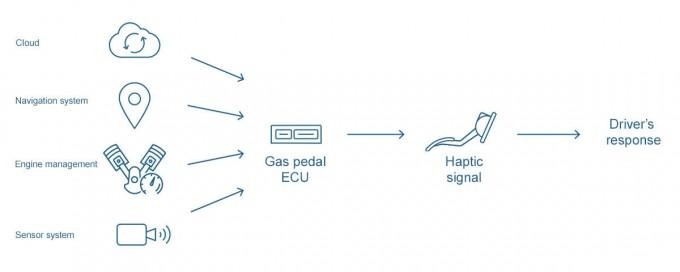Bosch Connected Gas Pedal Warns Drivers When They're Doing It Wrong
We've heard of connected speakers, connected bulbs, and, of course, connected cars. But a connected gas pedal? Before you cock an eyebrow at the idea, perhaps you should first hear what Bosch's connected gas pedal promises to bring: 7 percent savings in fuel and potential savings in life. All of that thanks to the simple but almost ingenious idea of adding haptic feedback to a gas pedal and connecting that otherwise mundane part of the car to the rest of the car's smart system and, of course, to the Internet.
7% might seem too small a number, but fuel savings here and there translate to reduced CO2 emissions over time. Everything adds up and when it comes to reducing greenhouse gases, every little bit counts. This seemingly magic function is possible because Bosch's "smart" pedal is able to connect with a car's myriad systems, in this case, the transmission. It alerts the driver through palpable but not distracting vibrations when it's time to give the pedal a break. But, as always, the driver still has the final say and can accelerate by choice by applying extra pressure.

The pedal delivers the message via three kinds of haptic feedback. Perhaps the most common would be vibration to signal some warning or information. There is also a knocking movement that could be used, for example, to tell the driver the best time to shift gears or when switching between electric and gas engines in hybrids. Finally, there's counterpressure to act as a soft of deterrent to, say, ill-advised acceleration.
In some cases, however, it might be best to heed the pedal's advice. That's because Bosch's connected gas pedal is no one trick pony. Aside from transmission, it can also connect to the car's navigation and assistance systems and give drives more noticeable warnings in addition to any visual warning system. For example, when connected to collision warning systems, the pedal can also vibrate to tell drivers not to speed up.

The pedal can also be made to connect to the Internet and potentially to other cars as well, even to connected infrastructure like traffic lights, buildings, and more. This allows the pedal to act like a hub for all of these sources of information to relay relevant warnings to drivers in a non-obtrusive manner.
Bosch hasn't yet made known when and where this new type of gas pedal will hit cars in the market. But as the world's topmost supplier, third top in North America, according to Automotive News, you can bet that it will just be a matter of time before tomorrow's smart cars get their own smart gas pedals.

